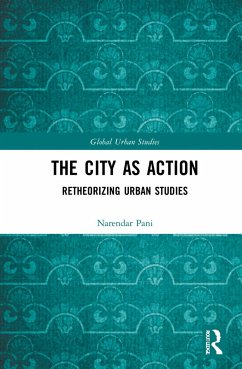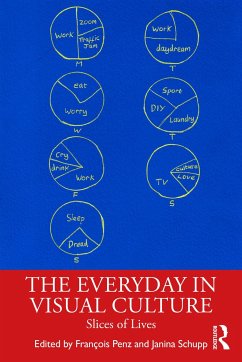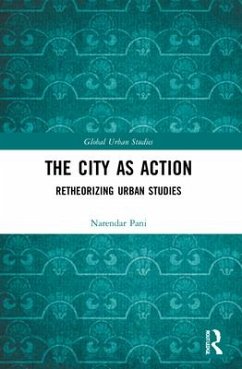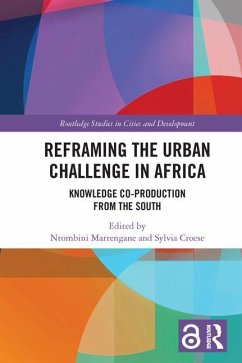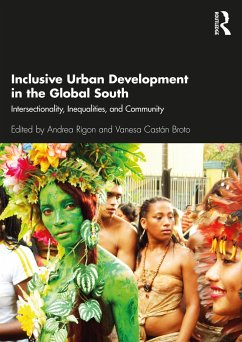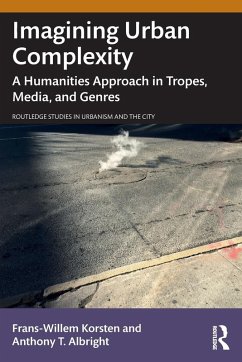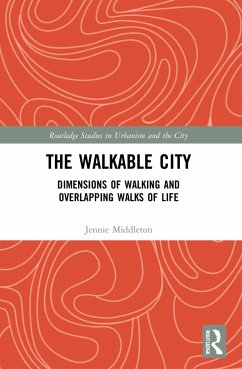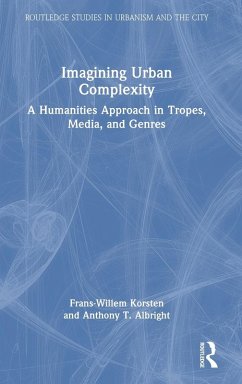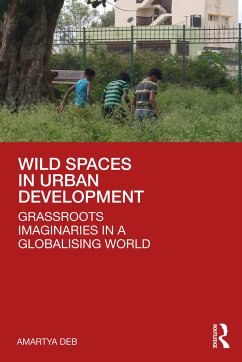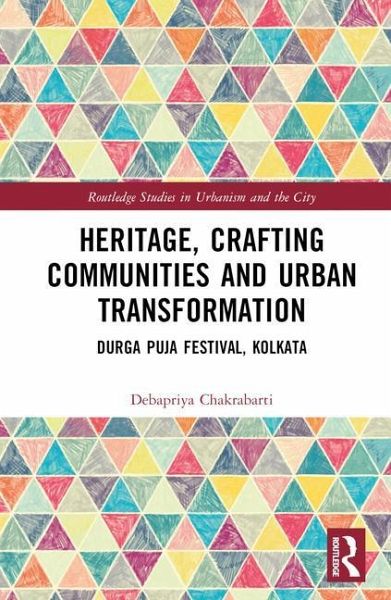
Heritage, Crafting Communities and Urban Transformation
Durga Puja Festival, Kolkata
Versandkostenfrei!
Versandfertig in 6-10 Tagen
154,99 €
inkl. MwSt.
Weitere Ausgaben:

PAYBACK Punkte
77 °P sammeln!
This book emphasises the need to empower marginalised communities to contribute to decision-making processes within policy realms. It contributes to ongoing debates in the social sciences about infrastructure rights and citizenship, and it throws insight on human-infrastructure interactions in the informal neighbourhoods of the global South.The book delves into the complexities of caste, gender, class, and political identities and affiliations associated with the multiple factors of inclusion and exclusion particularly in the case of access to infrastructure in informal settlements in urban ar...
This book emphasises the need to empower marginalised communities to contribute to decision-making processes within policy realms. It contributes to ongoing debates in the social sciences about infrastructure rights and citizenship, and it throws insight on human-infrastructure interactions in the informal neighbourhoods of the global South.
The book delves into the complexities of caste, gender, class, and political identities and affiliations associated with the multiple factors of inclusion and exclusion particularly in the case of access to infrastructure in informal settlements in urban areas with an added productive function. This book is about how this historic inner-city, situated, religious idol-crafting community is transforming due to factors including access to physical and social infrastructure, local governance policies, sociopolitical hierarchies, and complexities of informal tenure. Drawing on sociocultural norms, and values of idol-crafting practices, it documents, analyses, and presents the networks and relations of the neighbourhood through a spatial and material lens. Findings contribute to understanding how traditional practices of a crafting community are adapting, appropriating, producing, and reshaping informal spaces in Kumartuli.
The book is aimed at academic audiences across the world researching creative industries, Kolkata's regeneration agenda, and cultural tourism. It will be of interest to the wide disciplines of Urban Studies, Development Studies, Architecture and Planning, and Culture and Tourism Studies.
The book delves into the complexities of caste, gender, class, and political identities and affiliations associated with the multiple factors of inclusion and exclusion particularly in the case of access to infrastructure in informal settlements in urban areas with an added productive function. This book is about how this historic inner-city, situated, religious idol-crafting community is transforming due to factors including access to physical and social infrastructure, local governance policies, sociopolitical hierarchies, and complexities of informal tenure. Drawing on sociocultural norms, and values of idol-crafting practices, it documents, analyses, and presents the networks and relations of the neighbourhood through a spatial and material lens. Findings contribute to understanding how traditional practices of a crafting community are adapting, appropriating, producing, and reshaping informal spaces in Kumartuli.
The book is aimed at academic audiences across the world researching creative industries, Kolkata's regeneration agenda, and cultural tourism. It will be of interest to the wide disciplines of Urban Studies, Development Studies, Architecture and Planning, and Culture and Tourism Studies.





